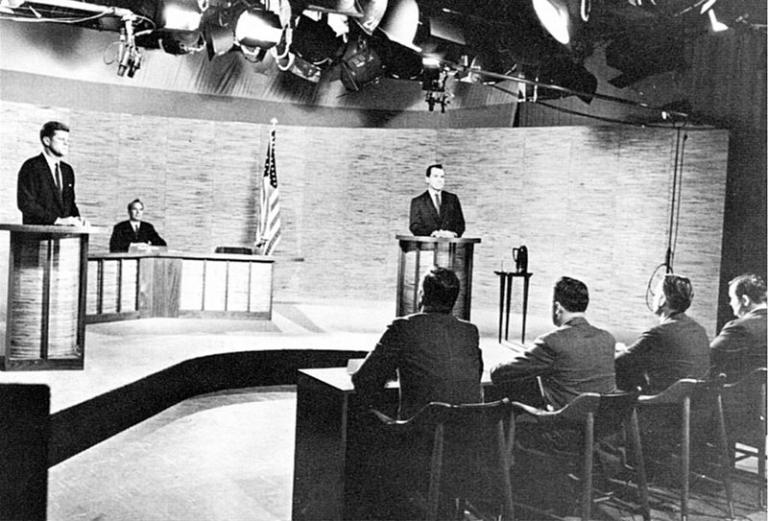
(Wikimedia Commons public domain image)
I agree with this article, which was written by a Roman Catholic: “Does Jesus Have a Sense of Humor? Jesus is fully God and fully man. He is like us in every way except sin. This includes having a sense of humor.”
It reminds me of the review of a book from another Catholic thinker that I came across a couple of years ago: “Making God Laugh: A new book makes the case that humor is heavenly.” Alas, though, I still haven’t read the book. (Life is short.)
And, in its turn, the review reminded me of a comment from Brigham Young: “There is no music in hell,” he once said, “for all good music belongs to heaven.” And it’s true that a recurring theme in a substantial minority of reports of near-death experiences is that of incredibly beautiful music. I wonder, though, whether Brigham’s confident statement is entirely true: After all, wouldn’t hell be a wonderful place for bad music? Personally, I believe that I’ve had repeated direct and personal experiences with hellish music. To cite just one instance, the interminably long “It’s a Small World” ride at Disneyland, in Anaheim, California, offers a harrowing foretaste of an eternity of excruciating torment for all those with ears to hear. (For those who lack ears to ear, though, it’s probably pretty much harmless, and the line moves really fast.)
Moreover, the review reminded me of yet something else: I was the founder and, for years, the editor-in-chief of Brigham Young University’s former Middle Eastern Texts Initiative, which, a few years after my enforced departure from the project, was unfortunately transferred by the Maxwell Institute to the massively expensive E. J. Brill Publishing in the Netherlands. The Middle Eastern Texts Initiative (METI) produced bilingual editions of books (mostly Islamic, but also sometimes Eastern Christian and Jewish) from the classical Islamic world. The books were printed at Brigham Young University Press and distributed by the University of Chicago Press.
Anyway, one of the volumes features what I still consider the best single line that we ever published. But, first, just a tiny bit of prefatory material:
Al-Ghazālī (d. AD 1111), who was one of the most significant figures in the history of Islamic thought, a legendarily brilliant philosophical theologian and legal thinker who spent most of his life in Iran and Iraq but also sojourned for a significant period in Jerusalem, is talking about extremely poor students, and, in that context, attributes the following remark to Jesus:
“Even though I managed to raise the dead, I have never been able to cure an idiot!”
(See al-Ghazālī, “O Son!,” trans. David C. Reisman, in Classical Foundations of Islamic Educational Thought, ed. Bradley J. Cook [Provo, UT: Brigham Young University Press, 2010], 103.)
Now, I’ll admit that my first inclination when I came across the passage was to say that this alleged statement can’t possibly be authentic. And that’s still probably correct. But al-Ghazālī is entirely serious, and he plainly regards the statement as genuine. Furthermore, his citation of it takes us back fully a thousand years or more, halfway to the time of Jesus. So . . .
I have to confess that I rather like the idea that the Savior might have said such a thing. It humanizes him a bit. Surely, with all those long walks from Nazareth to Capernaum, and from Capernaum to Jericho, and from Jericho to Jerusalem, and from Jerusalem back up to Capernaum or Nazareth, it can’t all have been immortal sermons and solemn earnestness. (Can it? Maybe I’m just not fit for heaven.) There must have been some small talk. And the image of Jesus trudging along with the disciples down those dusty paths and confiding, at the end of a tough day, “You know, Peter? I can raise the dead, but I just can’t cure idiots” is oddly appealing to me.
Still, alas, it’s probably bogus.
Here are a couple of other cases, though, where I think that an impish divine sense of humor may actually play a role. Both are instances where, if my hypotheses are on target, the prank was set in place long before it was noticed:
1) The appearance of Elijah in the Kirtland Temple: “Elijah did come at Passover time — as pious Jews had long hoped he would — although he did not avail himself of the hospitably opened door of a faithful Jewish family but came to the House of the Lord in Kirtland.” See Stephen D. Ricks, “The Appearance of Elijah and Moses in the Kirtland Temple and the Jewish Passover,” BYU Studies 23/4 (1983): 483-486. Neither the early Latter-day Saints nor anybody else noticed for several decades. When they do notice, though, it becomes one of those things about Joseph Smith that are rather difficult to explain.
2) The appearance of Early Modern English (EModE) in the original English dictation of the Book of Mormon, as shown by Royal Skousen and Stanford Carmack. Once again, though, neither the early Latter-day Saints nor anybody else noticed for several decades. And, also once again, it becomes difficult to explain away. It’s very strange for believers, but, for those who seek a naturalistic explanation for the appearance of the Book of Mormon in the late 1820s, it’s virtually impossible.
Incidentally, BYU Studies and the Interpreter Foundation will be co-sponsoring an event on the evening of Saturday, 10 August 2024, to mark the culmination of Royal Skousen’s thirty-six years of work on his landmark Book of Mormon Critical Text Project. Details are still being worked out, but it will take place in Utah Valley and you may want to mark your calendar. Both Royal Skousen and Dr. Carmack are slated to speak at the event.

It’s widely judged by historians that Nixon won this debate on substance, while Kennedy won it on style and appearance — and, therefore, won it altogether.
I would like to call your attention to the online video of a recent “Latter-day Saint/Evangelical Protestant Dialogue” that features Robert Boylan, Spencer Marsh, and Blake Ostler on the Latter-day Saint side. (I can’t tell you who is on the Evangelical Protestant side; I haven’t had time to watch the video yet.)













